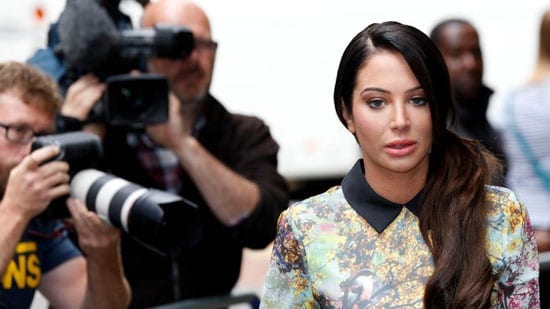In the wake of the collapse of the Tulisa Contostavlos drugs trial, we examine the merits of investigative journalism
Tulisa Contostavlos declared she’d had a “rollercoaster of a week” after she was convicted of assault in one case yet saw off another after it was thrown out due to the “serious misconduct” on the part of key witnesses for the prosecution. Tonight, the singer will appear in a BBC Three documentary that will “lift the lid” on that trial and provide her with a sounding board to share her thoughts on investigative journalism in general.
On BBC Radio 4’s Today this morning, highlights of the programme – titled Tulisa: The Price of Fame – were played. In her comments, Contostavlos declared:
“I was set-up. It’s a class thing. A lot of people are forgiven quite easy and I feel like with me, because of the urban image and upbringing that I don’t belong here. Like people were putting me back in my place”.
Of why she went along with the famed and now shamed undercover reporter Mazher Mahmood and the Sun on Sunday, Contostavlos, who thought she was being offered a major film part, commented:
“It was all part of the façade… I was having to hold him off for 24-hours. It was about playing the game and making him believe I’m the bad guy”.
Mahmood’s sting – which involved the ‘fake sheikh’ trying to persuade Contostavlos to obtain 13.9kg of cocaine for him – was undoubtedly not in the public interest but those now calling for investigative journalism to be outlawed are wrong.
Also speaking on Radio 4, David Yelland, a former editor of The Sun, sensibly stated:
“Investigative journalism is a vital part of the media… We shouldn’t be condemning investigative journalism at all. A lot of things he [Mazher Mahmood] did in his career were superb… There are a lot of things in the world that need investigating and there are a lot that don’t”.
Chris Blackhurst, group content director of The Independent and Evening Standard, added:
“It is a question of proportion. There’s always a case for investigative journalism but there is a fine line between that and entrapment… Mazher Mahmood broke one of the best stories in my career – the Pakistani cricket scandal – and you can’t take that away from him”.
In the wake of the phone hacking trial and the collapse of the Contostavlos case, it is clear that there is a definite need for newspaper proprietors to reassess which stories ought to be worthy of undercover investigation and which should not. Entrapment of the kind that occurred when addict Heath Ledger was cruelly lured into ranting about his drug habits, for example, was certainly wrong and not in the public interest; but such examples as undercover exposes on corrupt Home Office officials and police officers are for the general good and must not be reigned in.
Britain still has a free press and long may it remain that way. We thankfully do not live in Putin’s Russia or Kim Jong-un’s North Korea and the kind of over zealous legislation called for by the likes of Contostavlos and the Hacked Off campaign will never provide any kind of solution.
Tulisa: The Price of Fame will air on BBC Three tonight, Monday 28th July, at 10pm.
Subscribe to our free once daily email newsletter here:
